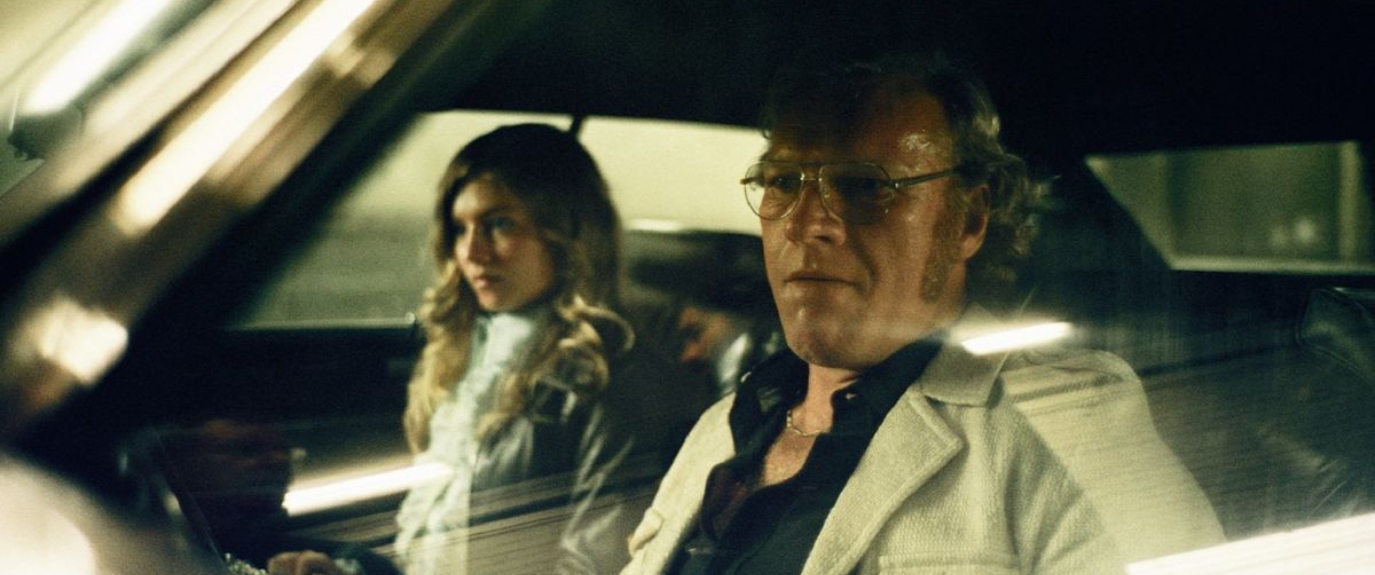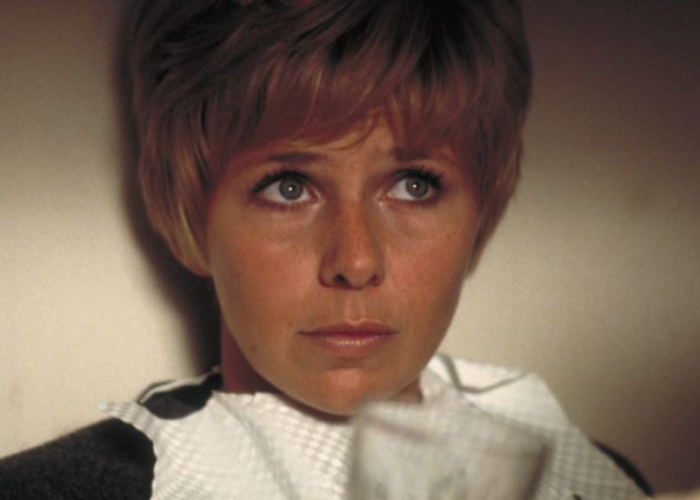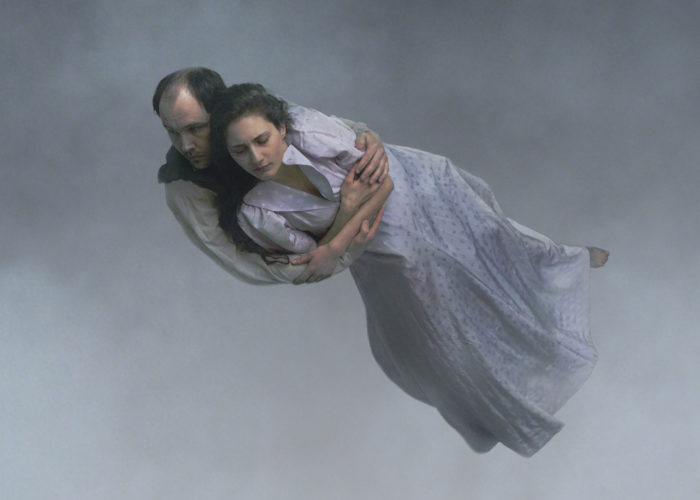
Mikael Marcimain, still of Call Girl, 2012. Courtesy of TIFF.
Nordic Noirs
Toronto, Ontario
Presented by
Toronto International Film Festival

TIFF spotlights Nordic Noir films in November, the final of three retrospectives in a year-long series celebrating the best of Nordic cinema.
Nordic Noirs traces the Nordic crime-fiction phenomenon to its roots in modern literature and the foundations of the region’s cinema itself. Each of the films in this series uses local elements to craft compelling and unique mysteries which stand with the best of the genre. Films include: Bodil Ipsen’s Melody of Murder, Baltasar Kormákur’s Jar City, Óskar Jónasson’s Reykjavik Rotterdam, Reynir Oddsson’s Story of a Murder, Morten Tyldum’s Headhunters, and Mikael Marcimain’s Call Girl.
Read film synopses below.
Based on the bestseller by Icelandic crime novelist Arnaldur Indriðason, Baltasar Kormákur’s Jar City announced the 2000s boom of “Nordic Noirs” that soon gained huge international exposure with The Girl with the Dragon Tattoo. Called in to investigate “a typical Icelandic murder: bloody and pointless,” hard-bitten, chain-smoking detective Erlendur (Ingvar E. Sigurdsson) discovers that the victim is connected to some nefarious goings-on three decades previously involving a dead little girl, a crooked cop, and a hulking, imprisoned criminal famous as “the most notorious maniac in Iceland.” As Erlendur follows the trail, pathologist Örn (Atli Rafn Sigurdsson) embarks on a parallel odyssey as he desperately searches for the cause of his daughter’s incurable hereditary disease. Literalizing Kormákur’s recurring theme of the past haunting the present through the motif of a genetic “deviation” passed down through the generations, Jar City is “intricate and pointed, conjuring a haunting, satisfying puzzle out of violence and chaos…. an unusually forceful and thought-provoking thriller” (A.O. Scott, The New York Times).
Tickets: www.tiff.net/events/jar-city
Produced during the German occupation of Denmark, Melody of Murder was directed by Bodil Ipsen, whose career stretched across four decades from the 1920s to the 1960s. Ipsen began her career as an actor in theatre, ultimately playing more than 200 roles, most of them leads, in Norway and Sweden as well as Denmark.
As an actor, Ipsen specialized in folk comedies and melodramas, but she established herself as a director with film noirs, making her debut with the country’s first noir, Derailed, produced in 1942 during the German Occupation. She would go on to make 10 films in 10 years, including two even more intense noirs, Melody of Murder and Possession, both released in 1944. (Her 1946 film The Red Meadows dealt directly with the Nazi Occupation. Co-directed by Lau Lauritzen Jr., the film won the Grand Prix at Cannes.)
Subtitled in English specifically for this series, Melody of Murder is about a shocking series of murders in Copenhagen. Each homicide is preceded by someone singing a French cabaret song, popularized by Sonja, a local chanteuse who shares the same name as the murder victims — and who soon becomes a suspect. Ipsen delves into mind control (via hypnotism) and portrays Copenhagen as a city under siege, perhaps commenting obliquely on the Occupation itself. Melody of Murder was praised for its intense themes, stylish look, and its sinister portrayal of Copenhagen.
Incidentally, the Bodil Awards, the annual film prizes selected by Danish film critics, were named in honour of Ipsen and actress Bodil Kjer. (Both won numerous Bodils.)
Tickets: www.tiff.net/events/melody-of-murder
Written by fabled Icelandic noir novelist Arnaldur Indriðason, the 2008 international hit Reykjavik-Rotterdam was directed by veteran Óskar Jónasson and stars actor-director Baltasar Kormákur, who also produced the film through his company. (Two years earlier, he had adapted Indriðason’s influential Jar City to the screen, a collaboration that led directly to this movie.)
The inventive and clever family man Kristofer (Kormákur), a reformed smuggler, is enlisted by old friend Steingrimur (Ingvar Sigurðsson, also from Jar City) to make one last big score. But Steingrimur has numerous ulterior, undisclosed motives, ones that threaten Kristofer’s domestic bliss. The deal goes twisted immediately, with Kristofer and his buddies dragged into a gun battle by some coke-addled Dutch gangsters.
Reykjavik-Rotterdam marries the grimy milieu of Indriðason’s noir novels with the incompetent low-rent hoods of earlier Icelandic crime films. Indriðason’s interest in cinema was baked in: novels by his father, Indriði G. Þorsteinsson, served as the basis for two key early Icelandic cinema successes Girl Gogo (1962) and Land and Sons (1980).
Reynir Oddsson’s Story of a Murder (1977) remains a watershed moment in Icelandic cinema, and an early example of Nordic noir as influenced by the lacerating bourgeois critiques by filmmakers like Rainer Werner Fassbinder and the crime films of French master Claude Chabrol, who fused social criticism and genre.
Story of a Murder targets sexism, as well as the emerging Icelandic middle class, its consumerist proclivities and, in the case of this particular family, its perversity. Daughter Anna is in her early twenties, and at loose ends. She works an office job that bores her, and is in a romance with a pompous pseudo-intellectual. Anna’s friend berates her for complying so easily to his demands. This may be learned behaviour, as Anna’s father, Robert, is a brutal and possibly twisted tyrant who has completely terrorized his poor, put-upon wife Margret. (She’s so terrified of him, she panics when Anna uses Robert’s new stereo to play a record, terrified of her husband’s reaction.) On the surface, Robert is appalling enough, but underneath he’s far, far worse. Just how far he’ll go and how Anna and Margret will respond gets more shocking as the film progresses.
Story of a Murder was a critical hit, and Oddsson’s craft inspired the formation of the Icelandic Film Centre, state funding for film, and ultimately the Icelandic film industry as we now know it. Creepy, caustic, and chilling, this is a formative piece both for Icelandic cinema and the Nordic noir phenomenon.
Directed with brisk panache, Morten Tyldum’s adaptation of Jo Nesbø’s bestseller is a wildly entertaining thriller, loaded with visceral twists while targeting modern mores. Roger Brown (Aksel Hennie) lives an early-21st-century dream life. He’s a successful headhunter for Fortune 500 inductees and lives in an opulent modern home. Though he’s happily married to Diana (Synnøve Macody Lund), a statuesque art gallery owner, he spends his few spare moments with his enthusiastic mistress Lotte (Julie Ølgard). Yet Roger has a severe Napoleonic complex, and is so terrified of losing Diana that he continually lavishes her with absurdly extravagant gifts. He blows so much cash he’s forced to moonlight, stealing rare artwork from his own clientele. But his latest job uncovers something that could bring his frantically-maintained lifestyle crashing down around him.
Roger is a perfect Nesbø character, flush with unexpected success, which he doesn’t believe he deserves and is certain could disappear at any moment — which of course is exactly what happens. The cast is uniformly brilliant, including Nikolaj Coster-Waldau (Game of Thrones) as Roger’s latest target, but they’re led by Hennie, utterly convincing as a man whose entire life is based on a false image of being in control — until he’s on the run — while never losing the character’s buried but fundamental vulnerability. (Tylddum’s next film would be the acclaimed drama The Imitation Game.)
Tickets: www.tiff.net/events/headhunters
Mikael Marcimain’s 2012 debut feature, winner of the FIPRESCI prize at TIFF, was a welcome near naturalist antidote to the more lurid excesses of the Nordic crime thrillers of the period: a fascinating policier and political thriller inspired by the prostitution scandal that threatened to bring down Sweden’s Social Democratic government in the 1970s. It was also a prescient reminder that the real world can be a lot more disturbing than a pulp novel.
The story begins a few days before the end of a tumultuous election battle, when it looked like the Social Democrats would be unseated after decades in power. Even worse for the powers that be, dogged detective John Sandberg (Simon J. Berger) is getting closer to linking several government ministers to a sex-trafficking ring run by Dagmar Glans (played with gusto by one of Sweden’s greatest acting talents, Pernilla August). Meanwhile, the Social Democrats are determined to institute sweeping legal reforms that would affect age of consent and definitions of sexual assault — a particularly disturbing example of the foxes being left in charge of the henhouse.
Marcimain and his collaborators recreate their ’70s-era setting with both hilarious accuracy (earth tones are everywhere) and incisive socio-political insight. Call Girl paints a scathing portrait of a nation drunk on conspicuous consumption, and of a political class so convinced of its right to power that it can no longer recognize the difference between governance and self-interest. Depicting Stockholm’s lurid underworld milieu with a chilling lack of sensationalism — the scene where Dagmar and her cohorts indoctrinate their underage charges into prostitution is almost surreal in its matter-of-factness — Marcimain creates mounting suspense without the gimmicks so many other thriller directors rely upon.
Tickets: www.tiff.net/events/call-girl



